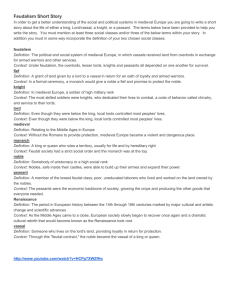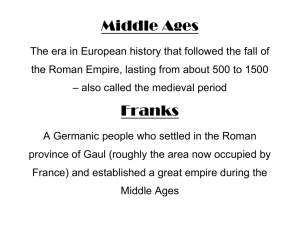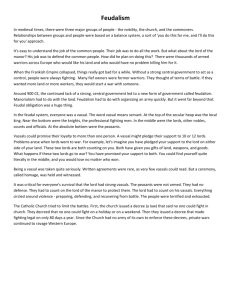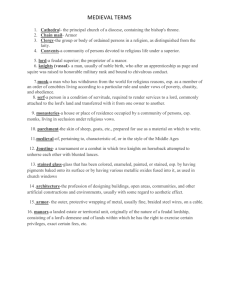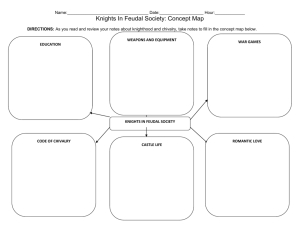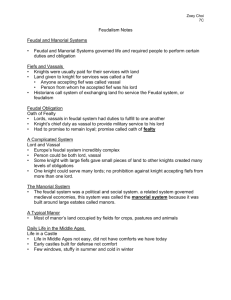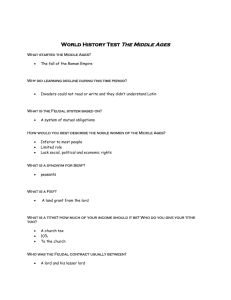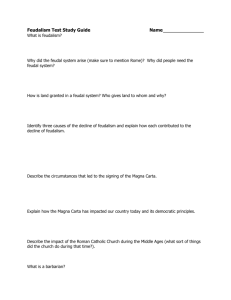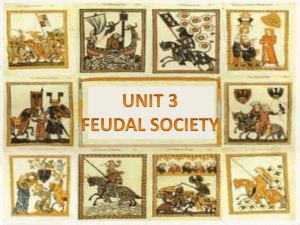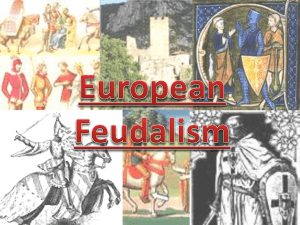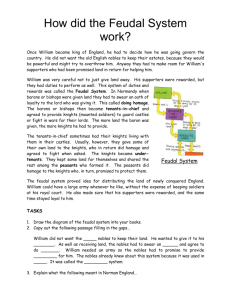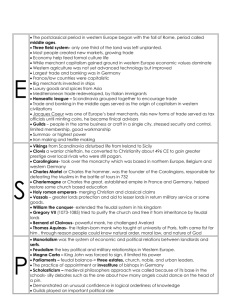MEDIEVAL AGES: FEUDALISM. Charlemagne ruled from 768 to
advertisement
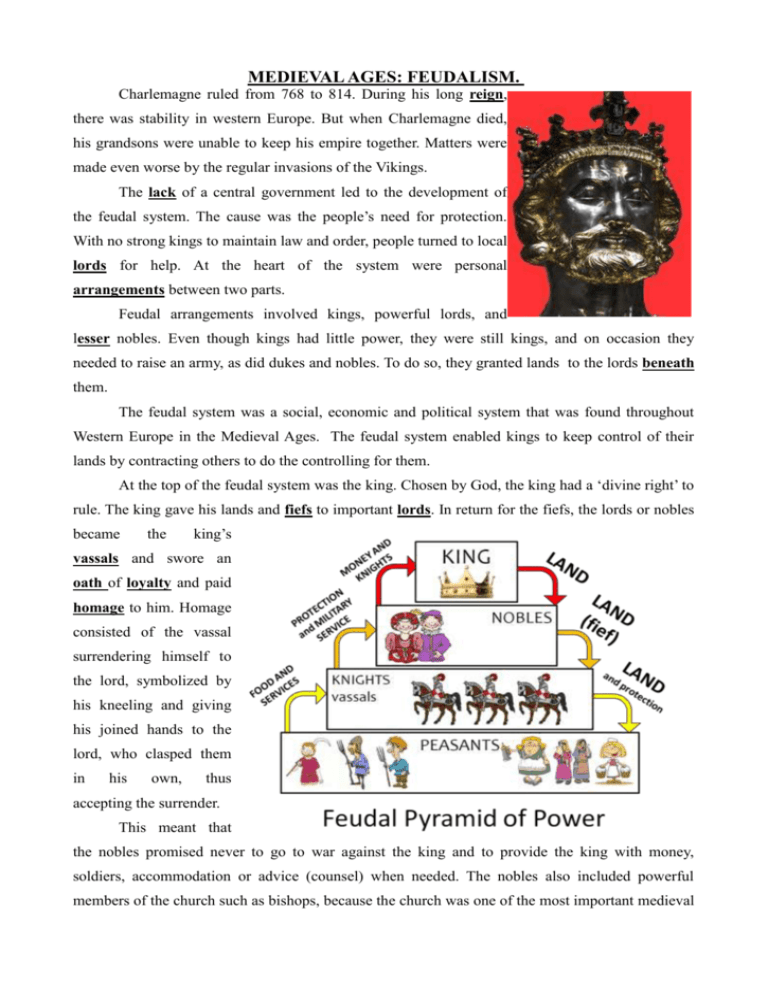
MEDIEVAL AGES: FEUDALISM. Charlemagne ruled from 768 to 814. During his long reign, there was stability in western Europe. But when Charlemagne died, his grandsons were unable to keep his empire together. Matters were made even worse by the regular invasions of the Vikings. The lack of a central government led to the development of the feudal system. The cause was the people’s need for protection. With no strong kings to maintain law and order, people turned to local lords for help. At the heart of the system were personal arrangements between two parts. Feudal arrangements involved kings, powerful lords, and lesser nobles. Even though kings had little power, they were still kings, and on occasion they needed to raise an army, as did dukes and nobles. To do so, they granted lands to the lords beneath them. The feudal system was a social, economic and political system that was found throughout Western Europe in the Medieval Ages. The feudal system enabled kings to keep control of their lands by contracting others to do the controlling for them. At the top of the feudal system was the king. Chosen by God, the king had a ‘divine right’ to rule. The king gave his lands and fiefs to important lords. In return for the fiefs, the lords or nobles became the king’s vassals and swore an oath of loyalty and paid homage to him. Homage consisted of the vassal surrendering himself to the lord, symbolized by his kneeling and giving his joined hands to the lord, who clasped them in his own, thus accepting the surrender. This meant that the nobles promised never to go to war against the king and to provide the king with money, soldiers, accommodation or advice (counsel) when needed. The nobles also included powerful members of the church such as bishops, because the church was one of the most important medieval landowners. The lord also had vassals who were called knights. Again in return for fiefs, the vassals made promises, the most important of which was to serve the lord as a soldier of 40 days a year. The vast majority of people were peasants who worked directly for the knights, who paid rents and taxes to him and who fought for him in time of war. The knights also provided for law and order and justice through the courts. Most peasants were serfs who were ‘owned’ by the knights. It was common for a peasant to have a small plot of land on which to grow food for himself and his family. Peasants had to spend time every week working the lord’s land and even had to ask permission to leave the fief. ACTIVITIES. 1. Define these concepts: FEUDALISM VASSAL FIEF HOMAGE SERF 2. CROSSWORD. Across 1. a member of a class of low social status that depends on agricultural labour as a means of subsistence 5. (in feudal Europe) the property or fee granted to a vassal for his maintenance by his lord in return for service 6. of or relating to a hereditary class with special social or political status, often derived from a feudal period 7. a male sovereign or monarch 9. (in the feudal system) a person granted the use of land, in return for rendering homage, fealty, and usually military service or its equivalent to a lord or other superior; feudal tenant. 10. the act of respect and allegiance made by a vassal to his lord Down 2. (in medieval Europe) an unfree person, esp one bound to the land. 3. 742–814, king of the Franks 768–814; as Charles I, emperor of the Holy Roman Empire 800–814. 4. any of the Scandinavian pirates who plundered the coasts of Europe from the 8th to 10th centuries. 7. a person who served his lord as a mounted and heavily armed soldier 8. the collective body of men and women ordained as religious ministers 1 2 3 4 5 6 7 8 9 10 EclipseCrossword.com A MEDIEVAL CASTLE.
